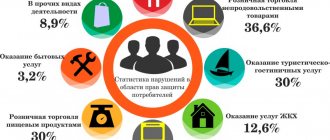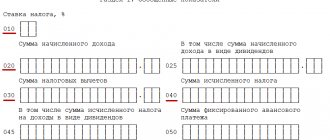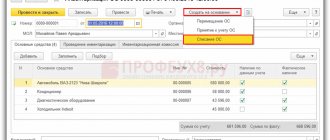Article 88 of the Tax Code of the Russian Federation defines a desk tax audit as a check of the law on taxes and fees based on the declaration and documentation that the payer submitted to the tax service. In addition, Article 88 of the Tax Code of the Russian Federation determines the procedure for conducting a desk tax audit.
At the beginning of the desk audit, the taxpayer submits a declaration or calculation to the Federal Tax Service. To implement it, you do not need any special decision from the management of the tax service or permission from the taxpayer. The latter is not sent a notification that the scan has begun. Three months are allotted for it after the declaration is submitted to the tax authority. If discrepancies, errors or inconsistencies in data were discovered during the audit, the tax service will notify the audited company and require an explanation or adjustments to the declaration.
When a request for explanations or adjustments is sent
The tax inspector may discover errors, discrepancies or inaccuracies during a desk audit. In this case, in accordance with paragraph 3 of Article 88 of the Tax Code of the Russian Federation, he must send the relevant requirements to the taxpayer.
Explanations to the declaration may be provided in writing by mail, personal delivery or via telecommunication channels using an electronic signature. Five working days are allotted for their provision from the date of receipt of the request.
If necessary, make adjustments to the declaration by submitting an updated declaration. During a desk audit, the tax office may request additional data or documents from the taxpayer:
- benefits information;
- data on the amount of VAT for reimbursement;
- a personal income tax or corporate tax return was submitted by a participant in a partnership or investment agreement;
- reporting is provided on tax obligations related to the use of natural resources.
Article 88 Tax Code of the Russian Federation
8.1. If inconsistencies are identified between information about transactions contained in the tax return for value added tax, or when information about transactions contained in the tax return for value added tax submitted by the taxpayer is identified, information about these transactions contained in the tax return for tax value added submitted to the tax authority by another taxpayer (another person who, in accordance with Chapter 21 of this Code, is charged with the obligation to submit a tax return for value added tax), or in the journal of received and issued invoices submitted to the tax body by a person who, in accordance with Chapter 21 of this Code, is entrusted with the corresponding responsibility, if such contradictions and inconsistencies indicate an underestimation of the amount of value added tax payable to the budget system of the Russian Federation, or an overestimation of the amount of value added tax, declared for reimbursement, the tax authority also has the right to request from the taxpayer invoices, primary and other documents related to these transactions.
We recommend reading: Documents required when selling an apartment in 2021
3) submission of an updated tax return (calculation), in which the amount of tax payable to the budget system of the Russian Federation is reduced, or the amount of the resulting loss is increased compared to the previously submitted tax return (calculation);
Key features of a desk tax audit
In accordance with Article 88 of the Tax Code of the Russian Federation, a desk tax audit is different:
Who conducts the desk audit?
As already noted, a desk audit does not require a mandatory visit to the taxpayer. Therefore, almost all control activities are carried out at the location of the tax authority. For this purpose, the inspectorates have created special departments for desk audits, where submitted declarations and calculations are received.
Employees of these departments (tax inspectors), as part of their daily job duties, with the help of special programs, carry out the above control activities.
REFERENCE. The decision of the head or deputy head of the Federal Tax Service to conduct a desk audit is not required. This is directly stated in paragraph 2 of Article 88 of the Tax Code of the Russian Federation.
Consequences of refusal to submit a declaration
Article 88 of the Tax Code of the Russian Federation, a desk tax audit establishes that when filing a declaration later than the deadline, this is equivalent to failure to submit a declaration. This can cause the following consequences:
How long does a desk audit last?
The deadline for conducting a desk audit corresponds to 3 months from the date of submission of reports to the tax service (clause 2 of Article 88 of the Tax Code of the Russian Federation).
The frequency of the desk audit depends on the submission of reports.
The decision to conduct a desk audit does not depend on the taxpayer.
The procedure for conducting a desk audit is regulated by the Tax Code of the Russian Federation.
About making a decision based on the results of a desk audit, read the material “A decision on a desk audit can be made before the expiration of a three-month period .
Powers of the tax inspectorate when conducting desk activities
When conducting a desk audit, Federal Tax Service employees can:
The request can be sent by mail, via TKS, or handed to the person against signature.
Procedure and timing of desk audits
^Back to top of page
The procedure for conducting a desk audit is established by Article 88 of the Tax Code of the Russian Federation.
A desk audit begins after the taxpayer has submitted a tax return or calculation to the tax authority. To begin an audit, no special decision of the head of the tax authority or permission of the taxpayer is required.
Notification of the start of a desk audit is not sent to the taxpayer.
A desk audit is carried out within 3 months from the date of submission of the declaration to the tax authority.
If errors, discrepancies or inconsistencies in information are revealed during a desk audit, the tax authority notifies the taxpayer about this with a request to provide explanations and/or make corrections to the tax return.
In what cases is a request for clarification or amendments to the declaration sent?
If during a desk audit the tax inspector reveals errors, discrepancies or inconsistencies in information, he sends the taxpayer a request to provide explanations and/or make changes to the tax return (clause 3 of Article 88 of the Tax Code of the Russian Federation).
Procedure for submitting explanations
Explanations for the tax return can be submitted in writing in person, by post or via telecommunications channels using an electronic signature. Explanations must be submitted within 5 working days from the date of receipt of the request for explanations (clause 3 of Article 88 of the Tax Code of the Russian Federation).
The procedure for making changes to the declaration
Changes to the declaration are made by submitting an updated declaration.
During a desk audit, the tax authority has the right to request additional information or documents from the taxpayer in the following cases:
- the amount of VAT to be refunded has been declared;
- benefits are claimed;
- reporting is presented on taxes related to the use of natural resources;
- the income tax or personal income tax declaration is submitted by the participant in the investment agreement; partnership.
Registration of desk audit results
^Back to top of page
No violations found:
- The desk check is automatically completed. The law does not provide for a notification from the tax authority to the taxpayer about the absence of violations and the completion of the desk audit.
Violations detected:
- within 10 working days from the completion of the desk audit, a desk audit report is drawn up in accordance with Article 100 of the Tax Code of the Russian Federation;
- the act is handed over to the taxpayer no later than 5 working days from the date of preparation;
- has the right to file objections to the desk audit report within 1 month
- within 10 working days after the deadline for submitting objections, the head of the tax authority is obliged to consider the audit materials, objections of the taxpayer, and make a decision on bringing or refusing to bring to justice for committing a tax offense.
The tax authority is obliged to notify the taxpayer of the time and place of consideration of the audit materials.
In some cases, the manager may decide to extend the period for reviewing inspection materials (no more than one month) and conduct additional
tax control measures
.
General audit department on the issue of the legality of the tax authority's requirements
Answer When answering, we assume that the Organization filed a primary (or updated) VAT tax return for the 2nd quarter without a corresponding refund of the VAT amount from the budget, i.e. for payment (addition) of VAT to the budget.
Based on subparagraph 31 of paragraph 1 of Article 31 of the Tax Code of the Russian Federation, tax authorities have the right to demand, in accordance with the legislation on taxes and fees, from a taxpayer, fee payer or tax agent documents in forms and (or) formats in electronic form established by state bodies and local governments, serving as the basis for the calculation and payment (withholding and transfer) of taxes and fees, as well as documents confirming the correctness of calculation and timely payment (withholding and transfer) of taxes and fees.
Based on subparagraph 6 of paragraph 1 of Article 23 of the Tax Code of the Russian Federation, taxpayers are required to submit to the tax authorities and their officials in the cases and in the manner provided for by this Code, documents necessary for the calculation and payment of taxes.
According to subparagraph 11 of paragraph 1 of Article 21 of the Tax Code of the Russian Federation, taxpayers have the right not to comply with unlawful acts and demands of tax authorities, other authorized bodies and their officials that do not comply with this Code or other federal laws.
In accordance with paragraph 1 of Article 93 of the Tax Code of the Russian Federation, the official of the tax authority conducting a tax audit has the right to demand [1] from the person being inspected the documents necessary for the audit
According to paragraph 27 of the Resolution of the Plenum of the Supreme Arbitration Court of the Russian Federation dated July 30, 2013 No. 57[2], from the interrelated interpretation of the provisions of Articles 88, 89, 93, 93.1 (clauses 1 and 1.1) and 101 of the Tax Code of the Russian Federation, it follows
that the demand from the taxpayer
, his counterparties or other persons (including state bodies)
documents relating to the activities of the taxpayer are allowed only during the period of a tax audit
or additional tax control measures being carried out in relation to this taxpayer.
In our opinion, since the tax authority submitted the demand during a desk audit against the Organization, the provisions of paragraph 1 of Article 93 of the Tax Code of the Russian Federation must be considered in conjunction with Article 88 of the Tax Code of the Russian Federation.
A desk tax audit is carried out at the location of the tax authority on the basis of tax returns (calculations) and documents submitted by the taxpayer, as well as other documents on the activities of the taxpayer available to the tax authority (clause 1 of Article 88 of the Tax Code of the Russian Federation).
A desk tax audit is carried out by authorized officials of the tax authority in accordance with their official duties without any special decision of the head of the tax authority within three months from the date of submission by the taxpayer of the tax return (calculation) (within six months from the date of submission by a foreign organization consisting of registration with the tax authority in accordance with clause 4.6 of Article 83 of this Code, tax return for value added tax) (clause 2 of Article 88 of the Tax Code of the Russian Federation).
Based on paragraph 3 of Article 88 of the Tax Code of the Russian Federation, if a desk tax audit reveals errors in the tax return (calculation) and (or) contradictions between the information contained in the submitted documents, or discrepancies are identified between the information provided by the taxpayer and the information contained in the documents held by the tax authority authority, and received by it during tax control, the taxpayer is informed about this with the requirement to provide the necessary explanations within five days [3] or make appropriate corrections within the prescribed period.
When conducting a desk tax audit on the basis of an updated tax return (calculation), in which the amount of tax payable to the budget system of the Russian Federation is reduced in comparison with a previously submitted tax return (calculation), the tax authority has the right to require the taxpayer to submit within five days necessary explanations justifying changes in the relevant indicators of the tax return (calculation).
According to paragraph 7 of Article 88 of the Tax Code of the Russian Federation, when conducting a desk tax audit, the tax authority does not have the right to request additional information and documents from the taxpayer,
unless otherwise provided by this article or if the submission of such documents along with the tax return (calculation) is not provided for by this Code.
Thus, from the totality of the stated rules it follows that a desk audit is carried out by the tax authority on the basis of the documents available to it, submitted by the taxpayer along with the tax return, or documents available to the tax authority, received during tax control activities.
At the same time, paragraph 7 of Article 88 of the Tax Code of the Russian Federation directly states that tax authorities, when conducting a desk audit, do not have the right to demand other documents or information, unless otherwise provided by this article.
In addition, the tax authority has the right to demand an explanation from the taxpayer if, during a desk audit, they identified errors in the tax return and (or) contradictions between the information contained in the documents available to the tax authority. Those. the requirement to provide explanations with the wording “if there are discrepancies” and in the absence of confirmation of identified discrepancies from the tax authorities does not comply with the current provisions of Article 88 of the Tax Code of the Russian Federation.
Let us note the provisions of Article 88 of the Tax Code of the Russian Federation, according to which tax authorities, when conducting a desk audit, have the right, on the basis of Article 93 of the Tax Code of the Russian Federation, to request other documents and information:
Clause 6 of Article 88 of the Tax Code of the Russian Federation.
When conducting a desk tax audit, the tax authority has the right to demand that a taxpayer-organization or a taxpayer-individual entrepreneur provide, within five days, the necessary explanations about the transactions (property) for which tax benefits have been applied, and (or) request documents from these taxpayers in the prescribed manner , confirming their right to such tax benefits.
Clause 8 of Article 88 of the Tax Code of the Russian Federation
. When submitting a tax return for value added tax, in which the right to a tax refund is declared, a desk tax audit is carried out taking into account the specifics provided for in this paragraph, on the basis of tax returns and documents submitted by the taxpayer in accordance with this Code.
The tax authority has the right to request from the taxpayer documents confirming, in accordance with Article 172 of this Code, the legality of applying tax deductions[4].
Clause 8.1. Article 88 of the Tax Code of the Russian Federation.
If inconsistencies are identified between information about transactions contained in the tax return for value added tax, or when information about transactions contained in the tax return for value added tax submitted by the taxpayer is identified, information about these transactions contained in the tax return for tax value added submitted to the tax authority by another taxpayer (another person who, in accordance with Chapter 21 of this Code, is charged with the obligation to submit a tax return for value added tax), or in the journal of received and issued invoices submitted to the tax body by a person who, in accordance with Chapter 21 of this Code, is entrusted with the corresponding responsibility, if such contradictions and inconsistencies indicate an underestimation of the amount of value added tax payable to the budget system of the Russian Federation, or an overestimation of the amount of value added tax, declared for reimbursement, the tax authority also has the right to request from the taxpayer invoices, primary and other documents related to these transactions.
Clause 8.3. Article 88 of the Tax Code of the Russian Federation.
When conducting a desk tax audit on the basis of an updated tax return (calculation) submitted after two years from the date established for filing a tax return (calculation) for the relevant tax for the corresponding reporting (tax) period, in which the amount of tax payable in budget system of the Russian Federation, or the amount of the received loss has been increased compared to the previously submitted tax return (calculation), the tax authority has the right to request from the taxpayer primary and other documents confirming changes in information in the relevant indicators of the tax return (calculation), and analytical tax accounting registers, on the basis of which the indicated indicators were formed before and after their changes.
This list is not subject to broad interpretation, which is also confirmed by judicial practice. For example, in the Resolution of the Tenth Arbitration Court of Appeal dated June 30, 2016 No. 10AP-7064/2016 in case No. A41-108119/15, it was noted that the court of first instance rightly indicated that the tax authority did not provide evidence of the existence of conditions for issuing a requirement for presentation documents confirming the amount of sales, within the framework of a desk tax audit, namely, the inspection’s fulfillment of the conditions provided for in paragraphs 3 and/or 6, 7, 8, 8.1 of Art. 88 Tax Code of the Russian Federation.
A similar opinion is expressed in Letter of the Ministry of Finance of the Russian Federation dated October 13, 2015 No. 03-02-07/1/58461:
«Question:
On the tax authority's request for documents (explanations) during a desk audit.
…Answer:
In accordance with subparagraph 1 of paragraph 1 of Article 31 of the Tax Code of the Russian Federation (hereinafter referred to as the Code), tax authorities have the right to demand, in accordance with the legislation on taxes and fees (for example, Articles 88, 89, 93, 93.1 of the Code) from the taxpayer, payer of the fee or tax agent documents serving as the basis for the calculation and payment (withholding and transfer) of taxes and fees, as well as documents confirming the correctness of calculation and timely payment (withholding and transfer) of taxes and fees.
When conducting a desk tax audit, the tax authority has the right to request documents (explanations) from the taxpayer in the cases specified in Article 88 of the Code.
If, in the opinion of an interested person, acts of tax authorities, actions or inactions of officials of tax authorities violate his rights, he has the right to appeal them in the manner established by Chapter 19 of the Code.”
In our opinion, under these circumstances, in your case, the tax authority has grounds to request documents under clause 8.1 of Article 88 of the Tax Code of the Russian Federation.
At the same time, this norm directly states that tax authorities, when conducting a desk audit, may request documents related to certain (specified) operations in respect of which contradictions (inconsistencies) with the data contained in the tax return of the taxpayer (another taxpayer) have been identified.
In your case, the tax authority requests documents that allow it to check the Organization in full, the specific list of requested documents is not defined, in some cases documents are requested that are not related to the period being audited or the subject of the audit, it is impossible to determine the discrepancies (errors) identified by the tax authority. The above, in our opinion, leads to the inconsistency of this requirement with the norms of Articles 88 and 93 of the Tax Code of the Russian Federation.
Thus, in our opinion, the Organization has the right not to comply with the requirement of the tax authority by virtue of subparagraph 11 of paragraph 1 of Article 21 of the Tax Code of the Russian Federation.
Let us note that what we have stated is also confirmed by judicial practice.
The Resolution of the Presidium of the Supreme Arbitration Court of the Russian Federation dated 04/08/08 No. 15333/07 in case No. A65-1455/2007-SA2-34 states the following:
“...Open Joint Stock Company “Bulgarneft” (hereinafter referred to as the company) applied to the Arbitration Court of the Republic of Tatarstan with an application to invalidate the decision of the Interdistrict Inspectorate of the Federal Tax Service for the largest taxpayers in the Republic of Tatarstan (hereinafter referred to as the inspection) dated October 17, 2006 N 649 YUL/K on bringing the company to tax liability provided for in paragraph 1 of Article 126 of the Tax Code of the Russian Federation, in the form of collecting a 200 ruble fine for failure to provide four types of documents:
— agreements for invoices received before and after 01/01/2006, deductions for which are indicated in lines 190 and 200 of the value added tax declaration for May 2006;
— acts of acceptance and transfer, deductions for which are indicated in lines 190 and 200 of the value added tax declaration for May 2006, to invoices received before and after 01/01/2006;
- certificates of work performed, deductions for which are indicated in lines 190 and 200 of the value added tax declaration for May 2006, to invoices received before and after 01/01/2006;
- documents on registration of the right to fixed assets, deductions for which are indicated in lines 190 and 200 of the value added tax declaration for May 2006, to invoices received before and after 01/01/2006.
When conducting a desk tax audit of the tax return for value added tax at a rate of 0 percent for May 2006, the inspectorate sent the applicant a request to submit a number of documents.
The company sent to the inspection part of the requested documents: a sales book for May 2006, a log of invoices issued for May 2006, invoice cards, calculation of the share of products sold for export in May 2006, an act for the transfer of a drilling well into operation, order dated 05/02/2006 N 66 - and indicated that invoices received before 01/01/2006 were previously submitted with letter dated 04/21/2006 N 505.
Believing that the documents were not presented in full, the inspection drew up an inspection report dated 09/08/2006 N 604 YUL/K and made a decision dated 10/17/2006 N 649 YUL/K to hold the company liable under paragraph 1 of Article 126 of the Tax Code of the Russian Federation. Federation (hereinafter referred to as the Code) in the form of a fine of 200 rubles, including for the company’s failure to provide documents on registration of the right to fixed assets.
The court of first instance concluded that it was impossible for the company to submit all the documents contained in the inspection request, since the list of these documents cannot be considered definite and it is impossible to establish a reliable number of documents. Requesting documents named in the inspection's request does not meet the goals of a desk tax audit.
The documents submitted by the company allowed it to conduct a full audit of the tax return;
the absence of a number of requested documents cannot serve as a basis for refusing to reimburse the amount of value added tax.
The appellate court, overturning the decision of the first instance court, proceeded from the fact that the court’s conclusion about the illegality of the inspectorate’s request for the mentioned documents during a desk tax audit was not based on tax legislation.
The cassation court agreed with this conclusion.
Meanwhile, this conclusion of the courts of appeal and cassation regarding the legality of bringing the company to tax liability is erroneous due to the following.
Within the meaning of Articles 88 and 93 of the Code, the requirement to submit documents necessary for a tax audit must contain sufficiently specific data about the documents that are requested by the tax authority, and the requested documents themselves must be related to the subject of the tax audit.
If such a requirement is not fulfilled by the taxpayer due to the request for documents that are not related to the subject of the tax audit, or due to the uncertainty of the requested documents, there are no grounds for applying the liability provided for in paragraph 1 of Article 126 of the Code
...”
From the stated opinion of the court, we can conclude that the required documents must be related to the subject of the audit (i.e., relate to the period of the audit and the tax in respect of which the audit is being carried out), and the list of documents must contain sufficiently specific data about the documents. At the same time, as follows from the text of the Resolution, the requirement to submit invoices, contracts, primary documents on the basis of which the deduction was made for the audited period does not correspond to the purposes of the desk audit and in such circumstances the list of documents is not certain.
Similar conclusions, with reference to the Resolution of the Presidium of the Supreme Arbitration Court of the Russian Federation dated 04/08/08 No. 15333/07 in case No. A65-1455/2007-SA2-34, are set out in the Resolution of the Federal Antimonopoly Service of the Moscow District dated 03/29/12 in case No. A40-66634/11-129- 286, Resolution of the Federal Antimonopoly Service of the North-Western District dated July 30, 2012 in case No. A05-13017/2011, Resolution of the Federal Antimonopoly Service of the Central District dated September 5, 2012 in case No. A35-14248/2011.
In the Resolution of the Moscow District Arbitration Court dated May 12, 2017 No. F05-5617/2017 in case No. A40-190691/2016, the court indicated that the inspection’s requirement to submit documents must contain data that will be sufficient to identify the documents. If there are no details, such a requirement can only be qualified as a request for information. The request form contains a condition on the mandatory indication of details, if any. Since the taxpayer's return included invoice numbers and dates, the inspectorate could indicate them. The court concluded that the requirement to submit shipping invoices, primary, payment and settlement and other documents does not comply with the law and does not oblige the taxpayer to submit them. The court took into account the position of the Supreme Court of the Russian Federation, set out in Determination No. 302-KG15-19180 dated 02/04/16, which noted that it is unacceptable to establish the amount of the fine based on the assumption that the taxpayer has the requested documents.
The Resolution of the Arbitration Court of the East Siberian District dated 05/06/16 No. F02-1921/2016 in case No. A78-11476/2015 noted the correctness of the conclusions of the lower courts that the actions of the tax authority when identifying contradictions between the data of tax returns and information about taxable persons the taxpayer's transactions received from his counterparties do not comply with the requirements of the Tax Code of the Russian Federation. The requested documents, in violation of paragraph 8.1 of Article 88 of the Tax Code of the Russian Federation, do not relate to specific transactions for which the inspectorate has questions for the taxpayer; they are summary or analytical accounting documents that are formed on the basis of primary documents and are not the basis for calculating tax.
According to the opinion of the Ministry of Finance of the Russian Federation set out in Letter dated August 10, 2015 No. SD-4-15 / [email protected] in cases of requesting documents in the manner provided for in paragraph 8.1 of Article 88 of the Tax Code of the Russian Federation, the tax authority, as part of a desk tax audit of the tax return, added value has the right to request copies of the sales book, purchase book, journal of received and issued invoices, as well as issued invoices.
College of Tax Consultants, August 22, 2021
[1] The form of the request for the provision of documents (information) is provided for by Order of the Federal Tax Service of Russia dated 05/08/15 No. ММВ-7-2/ [email protected]
[2] On some issues that arise when arbitration courts apply part one of the Tax Code of the Russian Federation
[3] The form for requesting explanations was approved by Order of the Federal Tax Service of Russia dated 05/08/15 No. ММВ-7-2/ [email protected]
[4] paragraph 25 of the Resolution of the Plenum of the Supreme Arbitration Court of the Russian Federation dated July 30, 2013 No. 57
Answers to the most interesting questions on our telegram channel knk_audit
Back to section
Article 88 of the Tax Code of the Russian Federation
6.2. If a juvenile convict who has been given a conditional sentence has committed a new crime during the probationary period that is not particularly serious, the court, taking into account the circumstances of the case and the identity of the perpetrator, may re-decide on a conditional sentence, establishing a new probationary period and assigning fulfillment of certain duties provided for in part five of Article 73 of this Code.
Note! If, during a desk audit of the income tax return, the tax authority does not find errors or contradictions, then it does not have the right to require the taxpayer to submit any supporting documents.
Reflection Art. 88 of the Tax Code of the Russian Federation in judicial acts
However, one should not think that if some documents are not specified in this article, and the inspection requires them, then its actions will necessarily be declared illegal by the courts. From the materials in case No. 301-KG16-4166, the ruling on which was issued on May 10, 2016 by the IC for Economic Disputes of the RF Armed Forces, the following is clear...
The entrepreneur considered that the tax authority violated Art. 88 of the Tax Code of the Russian Federation, which was reflected in the demand for justification for the amount of loss received in the absence of actual current losses. However, the argument was rejected by the courts as untenable, due to the fact that the absence of a loss during the tax period cannot limit the right of the tax authority to demand explanations about the amount of the loss declared in the declaration.
The procedure for holding a camera room
Desk inspection can be divided into two stages: automated control and in-depth inspection. Automated control of reporting occurs virtually without the participation of tax officials. After the data from the declaration (calculation) is loaded into the inspection information system, the computer itself checks the correctness of filling out the reporting lines and verifies the control ratios.
Also, information from declarations is “run” through special databases - the so-called automatic control systems (ACS). The most famous of them is ASK VAT-2, with the help of which a “cross-check” of the data of all VAT returns is carried out and “gaps” in the value added chains are identified. That is, situations are discovered when tax is accepted for deduction, but at the next stage is not transferred to the budget.
ATTENTION . The risk of additional charges during a desk audit for VAT can be reduced if you check received and issued invoices with counterparties in advance.
Carry out automatic reconciliation of invoices with counterparties Connect to the service
If, based on the results of automated control, errors, discrepancies or inconsistencies are found in reporting, this is a reason for an in-depth check. An extended check is also carried out if the declaration states benefits or the amount of VAT to be refunded. In addition, reporting on taxes related to the use of natural resources is subject to a mandatory in-depth audit (clauses 3, 6, 8 and 9 of Article 88 of the Tax Code of the Russian Federation).









